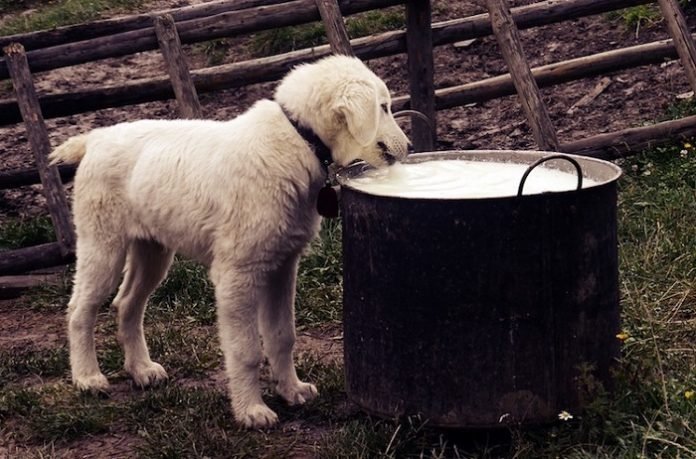
If you have dogs or cats, you may notice that some food, while safe for humans, can seriously threaten the health of your pets.
I used to read news that a dog ate some onions in the owner’s kitchen and then it had to be sent to an animal hospital.
To avoid thighs like this, a list that clearly shows the dangerous food will be very helpful.
In a review recently published in Frontiers in Veterinary Science, researchers listed common food items that are frequently reported to poison dogs and cats.
The first type of food is allium, including onion, garlic, leek, and chives. Cooking, drying, and processing cannot reduce the danger.
For example, some dogs and cats are poisoned after eating baked garlic, onion soufflé, butter-cooked onions, or Chinese steamed dumplings containing Chinese chives and garlic.
The clinical signs (e.g., vomiting, abdominal pain, loss of appetite, and depression) may appear 1 day or several days after consumption.
The second type of food is ethanol. It can be found in various products, such as alcoholic beverages, paint, varnish, medication, perfume, and mouthwash.
In dogs and cats, ethanol toxicosis often happens when animals have alcoholic beverage accidentally or eat rotten apples, sloe berries, and uncooked bread as well as pizza dough.
The clinical signs can appear within an hour of consumption, and animals may show depression, loss of muscular coordination, lethargy, and sedation.
The third type of food is grapes and their dried products, including raisins, sultanas, and currants. The food can cause renal failure in dogs.
Research has shown that small doses of raisins (2.8 mg) and 4-5 grapes can cause renal failure in a dog weighing 8.2 kg. Thus, eating any quantity of these fruits may be problematic.
A typical clinical sign is vomiting, which often occurs within 24 hours and is followed by renal failure.
Besides the above types of food, hops, macadamia nuts, coffee, tea, guarana, chocolate, candy, and sugar-free gum may also cause health problems in dogs and cats.
People should pay attention to this when feeding their pets.
Copyright © 2018 Knowridge Science Report. All rights reserved.



